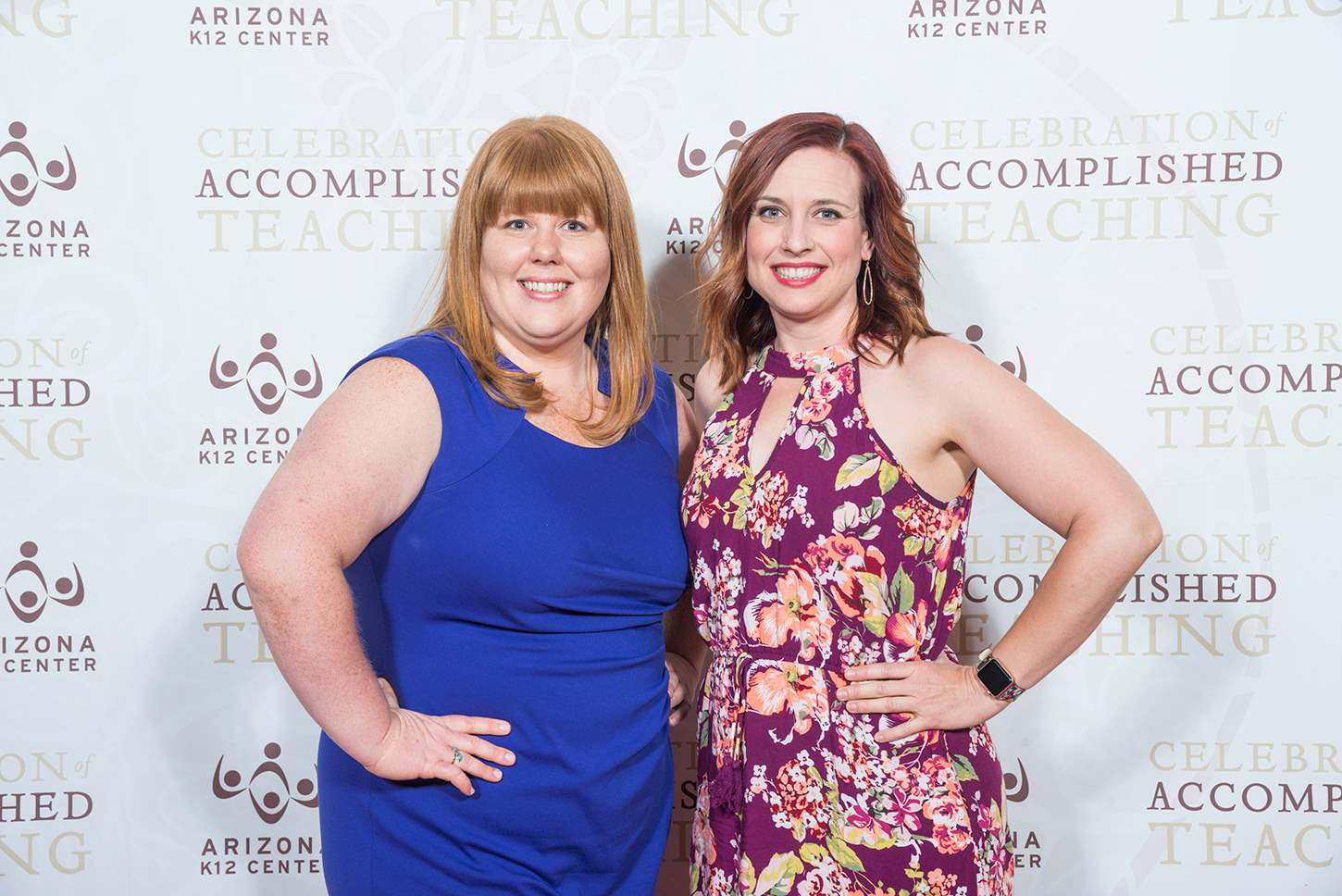InClass
Discover how one teacher built deeper relationships and gained invaluable knowledge as a mentor. In the past few years, Master Teacher Heidi Strate has had a lot on her plate. The Balsz Elementary math teacher and instructional coach was pursuing National Board certification when her school gave he
Aug 08, 2017
Discover how one teacher built deeper relationships and gained invaluable knowledge as a mentor.
In the past few years, Master Teacher Heidi Strate has had a lot on her plate. The Balsz Elementary math teacher and instructional coach was pursuing National Board certification when her school gave her another leadership opportunity. Her district invited her to attend Arizona K12 Center’s Mentor Academy which paid through a district grant program focused on building teacher leadership skills.
While Strate admits she was “a bit overwhelmed,” it’s clear the commitment paid off. Here are five reasons you should join in for the next round of Mentor Academy: Professional Learning Series Year One.
1. You’ll learn quicker.
Over the course of the three years of Mentor Academy, my growth as a coach and mentor has been so much more accelerated than it would have been without that training. It helped me refine my practice in a nurturing, challenging, and inspiring cohort (shout out to the awesome mentors from Maricopa, Somerton, Humboldt, and Salt River Pima-Maricopa!) and really think through what a successful mentoring program looks like and can accomplish. We had some tough conversations together about the realities of mentoring in our different connvarchar(max)s and tried out some faltering “practice” attempts at mentoring talks. I learned so much from the great trainers from the New Teacher Center (NTC).
2. You’ll invest in the profession.
In looking at the current state of teacher retention in Arizona, I can think of nothing more valuable and critical to the profession right now than investing in teacher-leaders to mentor the next generation of teachers in our state, and I’m deeply grateful that my career trajectory has led this way.
3. You’ll receive incomparable tools.
The built-in tools and protocols from NTC are incredibly rich — the CAL (Collaborative Assessment Log), the Selective Scripting template and the Analysis of Student Work (ASW) protocol have formed the backbone of my work in both mentoring and coaching. But they also have other tools for everything you might want in a specific situation — like a seating chart tool to help teachers visualize who they’re calling on and what student behaviors are happening. I’ve tried out using the tools in different ways, like adapting the selective scripting tool to help teachers identify specifically how they’re embedding the mathematical practices in their instruction. The tools are really flexible and certainly helped me understand what a comprehensive mentoring relationship looks like and covers.
4. You’ll learn how to overcome challenges as a mentor.
A key tension of my work is mentoring and coaching veteran teachers who are new to our district, which can be difficult for me as a mentor who may be younger than they are. Mentor Academy training specifically allowed me to identify and lean into that tension more so than I would have on my own and develop (and even practice) strategies for overcoming that tension. In particular, an inquiry project in year three of Mentor Academy really took my practice to the next level and helped me to frame and think about the key tensions and processes of my mentoring practice. It really changed how I think about my job — that any difficulties I encounter can be codified, studied and improved through the inquiry cycle!
5. You’ll forge deeper relationships with your colleagues.
Going through Mentor Academy with a mentor colleague in my district, Sarah Simpson, has been a huge joy and incredible resource. In our first year in Mentor Academy, we actually got the opportunity to observe and debrief each other’s mentoring conversations with different mentees, and the reflection we did together afterward was so helpful in really thinking about our mentoring practice and what we were accomplishing in those conversations with mentees. It was an incredibly vulnerable and challenging activity, but I gained so much by being open with my practice and having the eyes of a “critical friend” to help me work out who I was as a mentor and how I could be the most successful with my mentees.
Want to know how Strate is putting her knowledge into practice? Read about her experience with mentor Danny Salaz in “How Teacher-Mentors Are Changing Education.”






